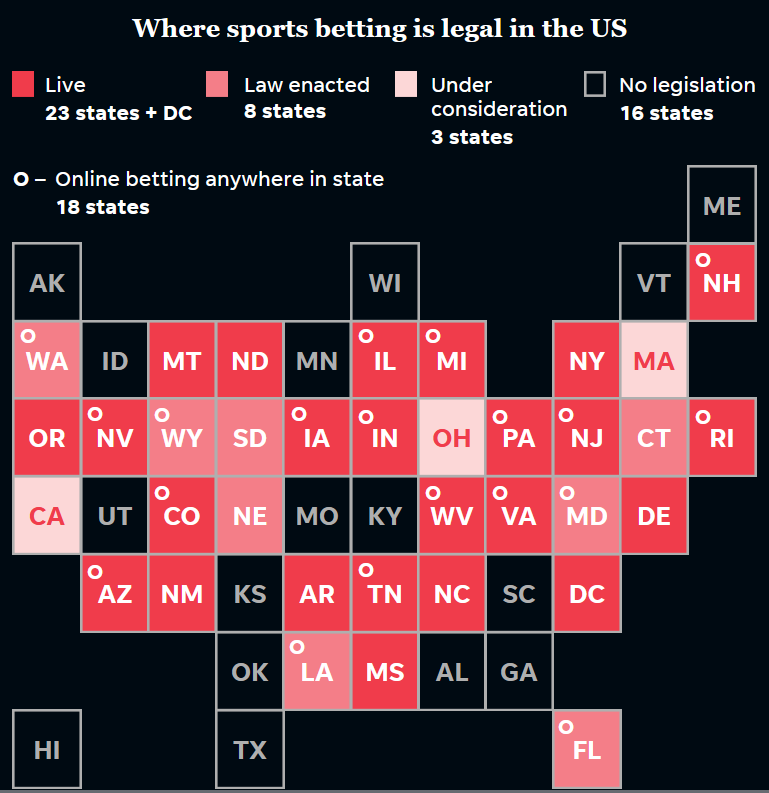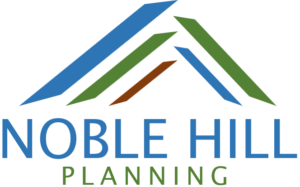If you watched the NFL playoffs this weekend… Wow! Those were some great games. All four of them ended on “walk-off” plays, something that has never happened before in the divisional playoff round. In addition to the great football (and with me being a finance geek), I also paid attention to the plethora of commercials for gambling companies. Something that would have been unthinkable even five years ago (gasp… the NFL would never partner with gamblers), now seems inevitable. The gambling explosion is here.
Down with PASPA
This all started waaaaay back in 2018 when the U.S. Supreme Court struck down something called the Professional and Amateur Sports Protection Act (PASPA). PASPA basically limited sports related gambling to Nevada for the previous 25 years. By negating PASPA, the Court allowed New Jersey (and every other state) to proceed with legalized gambling. Over the ensuing years, there has been a proliferation of states legalizing both in-person and online gambling venues. Take a look at this map from USA Today:

As you can see, there are only 16 states remaining that haven’t started the process of legalization. It’s likely only a matter of time until the remaining states try to get in on the action. And there is plenty of action going around. In June 2021, Americans wagered almost $3.7 billion on sports.
So what’s the point?
You may be thinking, what does this have to do with me? You may not gamble, so what does it matter if people want to have some fun and make the watching the game a little more interesting by wagering on certain things. My concern mainly revolves online access.
Online access
No longer do you need to schlep down to your nearest sports betting facility to place your wagers. Now you can hop on your smartphone and let the good times roll. But what happens when online gambling companies make strategic decisions to encourage gambling among their customers? What effect will these decisions have on children and young adults?
We can all agree that developers of apps and websites have a variety of psychological “tools” that they can use to encourage user engagement. These tools can include things like variable reward mechanisms, which keep things novel for the user and use their own brain chemistry against them. Many companies (i.e. social media, online games, and even some investment companies) have employed variable rewards to hook customers and drive business. These tools are akin to what tobacco companies were guilty of when they added chemicals such as bronchodilators, appealing flavors, and ammonia to cigarettes. Increase the uptake of nicotine and you can boost your customers desire to continue using your product. Will online gambling companies employ these tools? Without a doubt. Almost any mobile gambling app will be fine tuned to maximize customer engagement.
I’m not opposed to online gambling on principal. At a fundamental level, I believe people should be free to do what they want. And if someone wants to gamble on sporting events, so be it. In moderation, sports gambling can be a fun activity, and some folks even make quite the career our of it. In fact, I find gambling to be a fascinating area of study as it has many lessons that can translate to the world of investment management. However, I encourage everyone to exercise caution around the rapid growth of online gambling. It may be exciting and exhilarating, but there will be collateral damage. And it’s up to our local communities and broader society to figure out a way to manage these changes appropriately.

